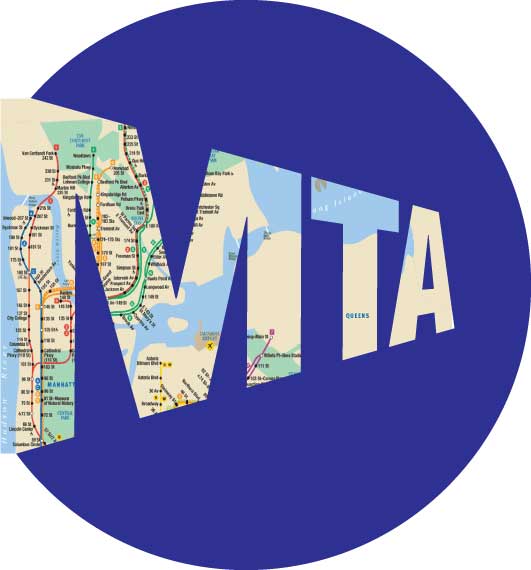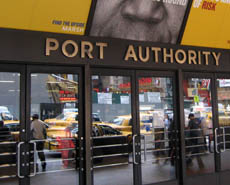Yonah Bergstrom summarizes the real estate experience of New York State’s Metropolitan Transit Authority nicely: “It’s a whole different world when you are leasing space underground,” he told us at last week’s Yardi Advanced Solutions Conference. The MTA is not just one of the nation’s largest public transportation providers, overseeing the operations of the New York City’s subways, buses, two commuter railroads and numerous bridges and tunnels. The agency also contains a major real estate operation, leasing space for everything from newsstands to food carts in subway stations and generating up to $200 million a year in revenue. Utilities pay to place fiber optics within rights of way, and antennae space is rented so that cell phones can work, and there are countless other uniquely transit-oriented real estate transactions. “Our tenants are scattered far and wide. Instead of vertically, like an office building, they are horizontal. Every mile of track, let’s say, is a floor,” explained Bergstrom, who has been with the MTA Real Estate Department since 1983 and guided its technology initiatives for last 14 years. For more than a decade, Yardi has provided the software platform that powers the MTA Real Estate Department’s financial record-keeping and reporting services using the company’s signature product, Yardi Voyager. In the process of transitioning to Voyager’s commercial-focused version, Bergstrom has words of praise for the power of Yardi. “It has given us transparency, it has helped streamline our processes, and it has improved productivity. In government, the most important thing is transparency. When we went to Voyager, we allowed the Agency controllers access, with drill down to transactions, and we’ve created custom analytics for the CFO’s,” Bergstrom said. “We needed a way to keep track of all of the properties and inventory, so Yardi has become that repository of anything and everything to do with any real estate interest that we have.” The MTA also purchases properties for capital improvement projects. The sheer volume of diverse tenants spread over 11 counties and as far as 100 miles from Manhattan could be overwhelming, but 100 custom Yardi reports help the MTA manage their properties and have detailed information at their fingertips. “This helps us respond to inquiries from the press, public officials and the general public. Before we had Yardi, these inquiries took days to research and respond to, “ Bergstrom said. Currently, a contract property management firm still brings in manual inspection reports from the MTA’s tenants, which are then keyed in to Yardi. Moving to a mobile inspection system Yardi Inspection Mobile is a focus for the organization and will save major staff time. “We aquire it, market it, negotiate it, lease it, manage it and collect the rent for it…and we use Yardi for all of it,” Bergstrom remarked. Bergstrom shared an example of when Yardi’s database came in especially handy. A transit strike was planned, and his department needed to quickly notify building owners with stairwells feeding into the subway that they should lock the gates. “My boss came to me and said we have to find a way to send out letters to all the owners of these stairways. Can we do that? The strike is four days from now, and we need certified letters. Well, I happen to have all the stairway information listed in Yardi as one of the customizations. He went to lunch, and when he came back, there was a stack of 362 letters ready to go.” But it isn’t all about numbers and profits. Bergstrom shared that one of his favorite parts of his job is working with Yardi’s support and sales staff. He’s demonstrated the products to other public agencies to show what they can do, including to the Port Authority of New York/New Jersey, now also a Yardi client. “I like working with the Yardi people. They’re all really positive, great people. In my career experience, the best thing has...
Yardi Government Services...
Supporting NY/NJ Port Authority
Have you ever thought about how planes, trains, cargo ships and automobiles are inextricably linked with the world of real estate? There’s no better illustration of this reality then the Port Authority of New York and New Jersey, the largest port complex on the East Coast, which recently chose Yardi Voyager for Government to handle tenant management, lease administration, property management, and much more. The most important work of a port authority is to keep regional trade and transportation systems moving safely and smoothly. But roads, rails, seaports and airspace all require extensive supporting infrastructure and real estate, and that’s where Yardi Systems can be of great help. The Port Authority of New York and New Jersey will use Yardi’s commercial property management software solution for all of its real estate business, which ranges from office leases in One World Trade Center (Freedom Tower) to concession and fixed base operation leases at the nation’s three busiest airports (John F. Kennedy International Airport, LaGuardia Airport, Newark Liberty International Airport) to collecting tolls on the New Jersey Turnpike. More than 485 leases, 65M SF of buildings and 15,000 acres of property will be managed using Yardi Voyager. “Yardi can handle all of it, with our commercial off the shelf (COTS) system,” said Spencer Stewart, National Account Executive, Yardi Government Services, of the advantages of choosing Yardi Voyager. “We’re going to personalize it for you. We have all the tools to match your workflow and your terminology without the need to customize or modify.” Because governments are so unique, Yardi has created vertically integrated government services group. Yardi’s Government Services arm is ideally positioned to meet the needs of government clients, which frequently have diverse property management needs. The department includes a dedicated implementation staff for government...


